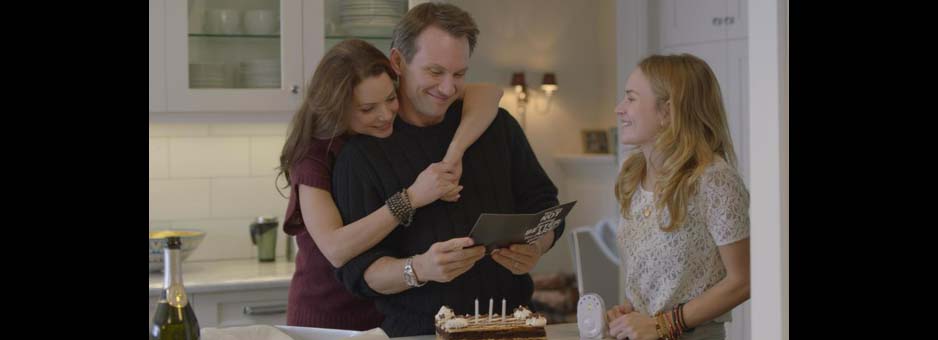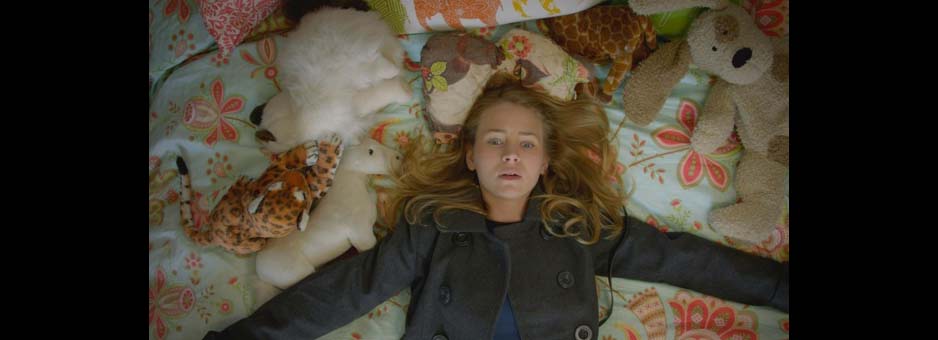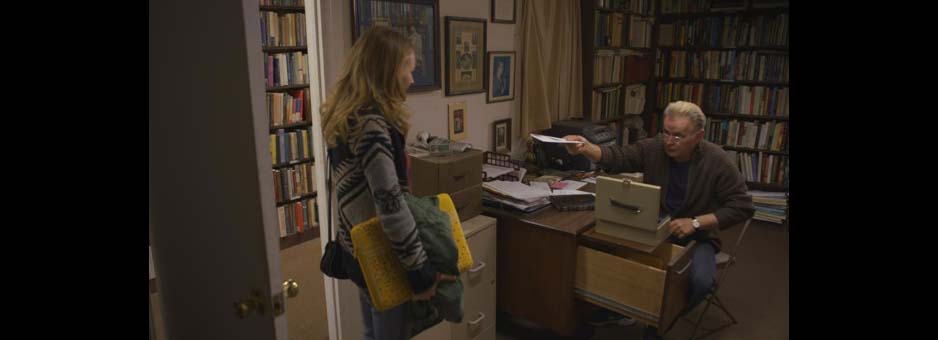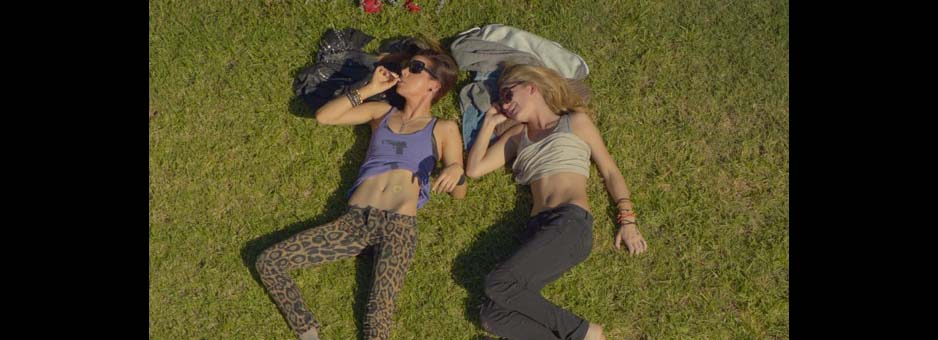Meet The Colourist
Andrew Lichtstein
Senior Colourist, Chainsaw (Los Angeles)
Senior Colorist Andy Lichtstein began his career backstage working for Mr. Rogers’ Neighborhood, WQED/Pittsburgh, and The National Geographic Specials. Since then he has developed a loyal following within the postproduction community for his talents as Digital Colorist for motion pictures, television, and commercials. We take a look at how he goes about his day.
How did you start out in post?
I studied Technical Theatre in college. I’d been working summer theatre and local productions serving as a grip and utility guy during the previous few summers. The local PBS station was on my walk home so I just walked in and inquired about an internship. I started that semester as art department assistant. Eventually, I made my way to the film unit where I began syncing dailies for National Geographic and assisting PBS’s Wonderworks series of made for TV movies. That was great experience for me. It was also the beginning of my love for documentary filmmaking, working with the best of the best.
How did you get into the job as a colourist?
After driving cross country, I landed at a Hollywood post house that was expanding its telecine department. I was hired as a telecine assistant. Having had cutting room experience, the role of dailies colorist was the next logical step for me. It was several years of graveyard dailies, often round the clock.
How has of the role of the colorist evolved over the years?
Years of grading OCN (original camera negative) was a great primer that enabled me to evolve and experiment with different visual styles. I enjoy the creativity and freedom of interpreting mood and helping to define a look for a project. As electronic capture has evolved and become the default production process, project specific “workflows’ were created to manage vast amounts of material. While working with directors and photographers to create compelling images, Colorists are now essential in assessing these workflows and contributing to the project beyond grading. It’s a delicate balance maximizing creativity with reasonable cost, but here at Chainsaw we do both. We use wonderful tools like Baselight and Truelight and within them, their tools for compositing and DI finishing. We had to be more efficient. Now we are.
What kind of projects have you been working on lately?
I’m particularly proud of work that I feel very passionately about. Anyone who knows me knows that I’m a skier, outdoors person and political junkie.
I recently completed the Sundance Festival audience award winning Inequality for All, with former US Secretary of Labor, Robert Reich, shot on RED and Sony F3 by Svetlana Cvetko. As well as The Bones Brigade, a sequel of sorts to Stacy Peralta’s Dogtown and Zboy, which I’d done with Stacy back in 2001. So there’s your politics and adventure right there!
I’ve been fortunate to work with DP John Simmons on multiple seasons of the Disney XD series, Pair of Kings, Dog with a Blog, and The Mighty Meds both utilizing our efficient Baselight/Avid workflow. Also, a beautifully photographed feature, Undiscovered Gyrl, directed by Allison Burnett, shot by Patrice Cochet, with Martine Sheen and Christian Slater.
I work on everything from independent features and documentaries to narrative and reality TV. The challenge working with these projects is not only monetary, but also logistical. They’re often very complicated, in varying states of completion and acquired material.
At Chainsaw, we’re sensitive to that, and patient. Baselight works with these formats collectively, mapping resolutions and reading codecs all in one sequence. Baselight’s intuitive grading ‘stacks’, its ability to blend, shape, blur, apply and compare an infinite number of ‘treatments’ to define a look or mood increases our productivity. The process of recalling, applying and moving through a timeline is very quick. Also with Baselight, I can conveniently ‘table’ a project for a time after establishing initial looks and grade at the convenience of the customer, and, to our facility scheduling. As the cut is revised and more material is acquired, Baseight makes the process of updating and revising extremely easy. I can return to a project, even render it out and Baselight will have provided fully graded handles to account for any revisions down the road. This back and forth process is not uncommon to documentary filmmaking. But, with the help of Baselight, our workflow here at Chainsaw allows the creative finish they’re entitled to, in a pragmatic, cost effective manner.
Also, here at Chainsaw we also work with very time-sensitive, deadline-driven and enormous, fx heavy reality television timelines. I use the Baselight Blackboard control panel to group and match grades, drag/drop, timeline sorting and pasting, and super fast timeline navigation. There is not a more efficient, effective and flexible way to get through a timeline in excess of 2000 cuts while still maintaining and applying the best, state-of-the-art creative tools along the way.
What makes for a good day at the desk?
It’s a great feeling when the client acknowledges that you’ve gone beyond their creative expectations, and delivered a great product. Also, working with the wonderful people at Chainsaw. It’s a fun place to be every day.
How would you summarize your relationship with FilmLight as a company
When I first started working on Baselight here at Chainsaw, it was an entirely new thing for me. I’d worked on other platforms, one in particular since it’s inception, but I decided to put all of it behind me and learn Baselight from the ground up. The owners of Chainsaw wanted expressly to have a system that was scalable in process to the way Chainsaw was growing. It was essential that Baselight communicated with AVID, FCP, ISIS, UNITY, and our other SANs COMPLETELY in a clip based environment, beyond projects that were 30 or 60 sec in length. Our relationship became truly collaborative, as Chainsaw served as a technology ‘lab’. FilmLight went to great lengths to support us, and the constantly changing challenges we encountered. To have that personal rapport with these very creative and smart people is a genuine asset. I am grateful for the help and support of my friends at FilmLight.
I enjoy traveling, and I’m hoping to visit the ‘Artist House’ to have beer and pie with my Filmlight friends some day soon.
I’m also a fan of vintage California residential architecture. But most of all, I love spending time with my girls, wife Kari and daughter Talia.
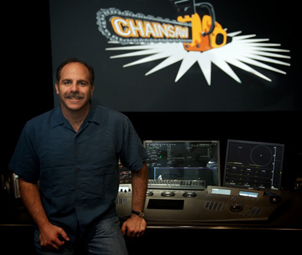
“FilmLight went to great lengths to support us, and the constantly changing challenges we encountered. To have that personal rapport with these very creative and smart people is a genuine asset."
Details
Colourist: Andrew Lichtstein
Role: Senior Colourist
Company: Chainsaw, Los Angeles
w: www.chainsawedit.com




